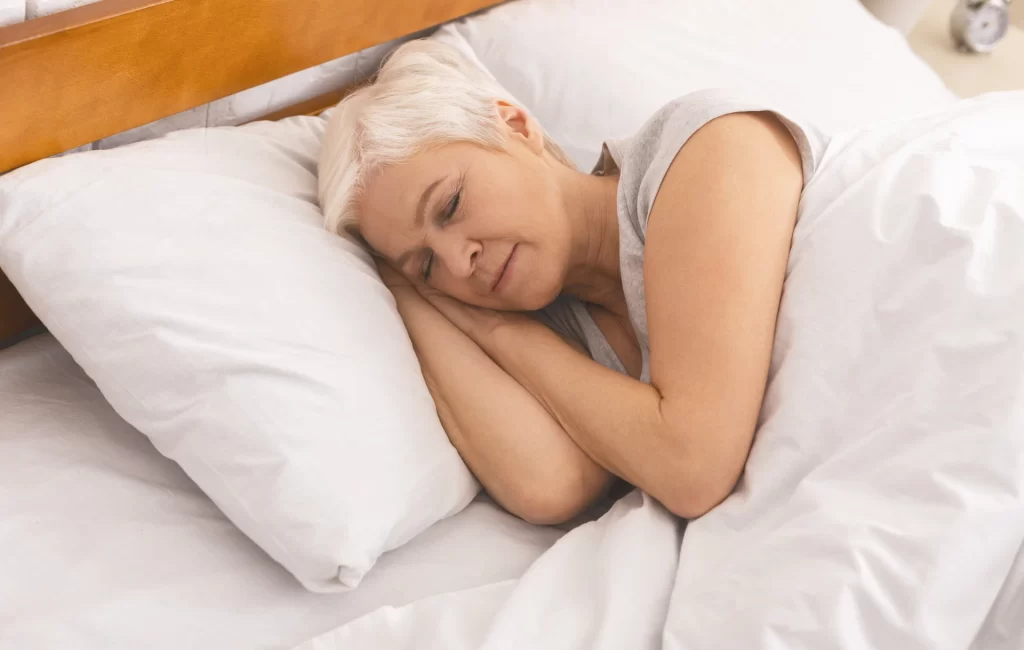They say, “It’s the small foxes that ruin the vineyard.”
Sometimes, the things we overlook—tiny, unassuming, seemingly harmless—are the culprits behind our biggest frustrations.
Now, let’s talk about tinnitus.
If you’ve never experienced it, imagine a constant ringing, buzzing, or whooshing sound in your ears that only you can hear.
For those who deal with it, it’s not just annoying. It’s exhausting. It can follow you through your day, and it sometimes feels deafening when the world goes quiet at night.
And here’s the kicker:
You might be doing everything “right” to manage it—avoiding loud noises, cutting back on caffeine, trying to relax—but still waking up to that same relentless sound.
What if something as simple as your pillow was part of the problem?
Now, before you toss your pillow across the room, hear me out. I’m not saying your pillow causes tinnitus.
But it could be quietly making it worse.
And even if you don’t suffer from tinnitus, what I’m about to share might still help you get a better night’s sleep and wake up feeling refreshed.
Because who doesn’t want that?
So, why am I sharing this? Because I’ve seen how small changes can make a big difference. Whether it’s in my own life or through the stories of others, it’s clear that sometimes, the simplest adjustments can unlock more comfort, peace, and even better sleep.
So let’s get into it:
Why your pillow matters more than you think, especially if tinnitus keeps you up at night.
The Pillow-Tinnitus Connection Nobody Talks About

Your pillow does more than cradle your head. It sets the stage for how your body rests and recovers. And if it’s not doing its job, it can mess with your neck, jaw, and even how you perceive that ringing in your ears.
Here’s how:
A pillow that doesn’t support your neck properly can lead to tension. And this isn’t just the “ugh, my neck is stiff” kind of tension. It can spill over into your jaw, especially if you have TMJ issues. Since TMJ and tinnitus are linked, this nightly strain can make the ringing louder by morning.
Then there’s the issue of pressure.
Side sleepers, have you ever noticed your ear feeling sore or your tinnitus feeling sharper? A firm or dense pillow pressing against your ear can amplify the sound, making it harder to ignore.
And we can’t forget about the role sleep plays.
A bad pillow can lead to restless nights, which often mean higher stress and anxiety. And stress? It’s like pouring gasoline on the tinnitus fire.
Even if you don’t have tinnitus, waking up with neck pain or feeling unrested is reason enough to rethink your pillow. After all, your sleep quality affects everything—from your energy to your mood to how well you can focus during the day.
A Simple Fix: Start with Your Pillow

The good news is, this isn’t an unsolvable problem.
Your pillow might be part of the issue, but it can also be part of the solution.
A good pillow should support your neck and keep your spine aligned, whether you’re a side, back, or stomach sleeper. Adjustable pillows are great because they let you find that sweet spot of comfort.
And if you’re a side sleeper, consider a softer pillow that reduces pressure on your ear. It could make a bigger difference than you expect.
And for those silent nights when tinnitus feels louder than ever, try adding some white noise to your room. A gentle hum, soft rain sounds, or even a fan can mask the ringing and help your brain focus on something more soothing.
Sometimes, small changes (like switching to a better pillow or adjusting how you sleep) can have a ripple effect on your comfort and peace of mind.
Even if tinnitus isn’t your struggle, finding the right pillow can improve your sleep, reduce neck pain, and leave you feeling more refreshed. Because let’s be honest—when was the last time you woke up without an ache or that “did I even sleep?” feeling?
Have you ever thought about how much your pillow affects your sleep—or even your tinnitus? Maybe you’ve tried swapping pillows or experimenting with sleep positions. Did it help?
I’d love to hear about your experience. Drop a reply and let’s chat about ways to make our nights quieter, calmer, and oh-so-comfortable.





